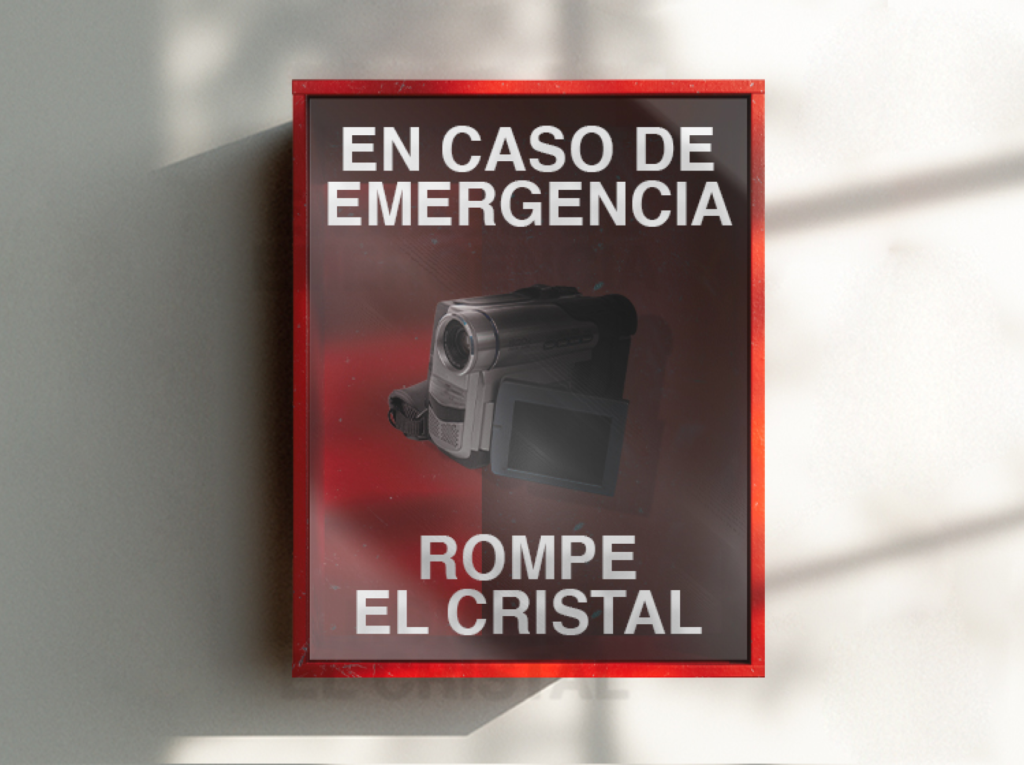The IV INSTAR Film Festival, the great transnational node of independent Cuban cinema, is coming soon
By RIALTA STAFF - november 10th, 2023
RIALTA

The IV INSTAR Film Festival, sponsored by the Hannah Arendt Institute of Artivism, will take place between December 4 and 10, organizers announced Friday. "In case of emergency, break the glass," warns the event's slogan this time.
With transnational headquarters spread across several cities in the world (Barcelona, Paris, New York, Miami, Mexico City, Buenos Aires, and Sao Paulo), the film festival has already established itself as a fundamental node in the field of independent Cuban cinema. At the same time, as in previous editions, its program expands to other creative geographies.
We identify as the beginning of this path the Cuban Cinema Under Censorship project, curated in 2018 by critic Dean Luis Reyes at the Museum of Modern Art in New York, in connection with a solo exhibition by Cuban artivist Tania Bruguera at that institution. Around that exhibition, a conversation took place between several Cuban filmmakers and cinephiles: Orlando Jimenez Leal, Miguel Coyula, Juan Carlos Cremata Malberti, and Eliecer Jimenez Almeida, as well as Reyes and Bruguera. In this dialogue, a need emerged: the creation of a support network from INSTAR.
As Bruguera, founder and director of the Institute, recalls in the introduction of this IV INSTAR Film Festival, the PM Awards, a fund to support the creation of short films, the post-production of feature films, and the distribution of finished works, with an emphasis on those hybrid pieces that de-territorialize the notion of cinema and explore new paths in its realization.
Subsequently, between 2019 and 2020, the Cine Independiente-Pendiente Showcase was organized, a monthly program curated by actress and writer Lynn Cruz. From that experience, the first edition of the INSTAR Film Festival was formalized at the end of 2020.
As the curator of that first edition, Cruz told Rialta News at the time: "Since Tania insisted that we could do something different, I proposed: Why don't we do something riskier? Why not an alternative film festival, especially now that Decree Law 373, at least apparently, indicates the government's willingness to legalize independent cinema? This also implies the emergence of autonomous spaces for cinema, as is the case of a festival. This should put an end to conflicts because what the official events reject would finally find its place. The underground has the right to exist. The big film institutions function as corporations. In the case of Cuba, it is known that, as in China, censorship extends beyond territorial borders. Anything that does not come with the approval of the ICAIC, in the case of filmmakers from the backyard, is received with suspicion. The obvious censorship generates sympathy, but there is one that operates silently, which occurs in the buffets or through phone calls. It is the one that makes it impossible to denounce but remains on the plane of subjectivity”.
A virtual edition would follow in December 2021 due to COVID-19, and by the summer of 2022, the festival was included in the activities of INSTAR at documenta 15 in Kassel, Germany. "Land Without Images”, as that last edition was titled, constituted -given the exhibition of 160 films- the largest retrospective of alternative Cuban cinema to date.
This year, the IV INSTAR Film Festival has been organized in a hybrid form. According to Bruguera, this happens due to “the massive exile of Cuban artists and intellectuals, among them the great majority of young active filmmakers we had worked with so far".
The screenings can be watched online from Cuba through the Festhome platform. "The concept that guides us," explains the performer, "is the transnational character of the New Cuban Cinema, as well as its growing dialogue with diverse cinematographies, especially those of countries also ruled by authoritarian governments, which impose strong censorship on artists."
A jury, consisting of Alejandro Hernández (Cuba), Dunja Fehimović (Bosnia and Herzegovina), and Paulo Antonio Paranaguá (Brazil), will award the Nicolás Guillén Landrián Prize "to the piece in competition that best reflects and explores, from audiovisual creation, some controversial topic of its corresponding society". According to the festival's presentation, "With this initiative, INSTAR intends to pay tribute to the relevant cinematographic work of Cuban documentary filmmaker and painter Nicolás Guillén Landrián (Camagüey, Cuba, 1938 - Florida, United States, 2003)".
Jose Luis Aparicio, artistic director of the last editions, stresses that this "is the first one conceived in exile"; this would explain "its lack of a center".
“Where do we set the headquarters of an event whose fundamental impulse has been the promotion and exhibition of Cuban independent cinema, when its homeland is inaccessible? How can we choose a point, fix an axis, among the multiple places of an ever-expanding diaspora? Isn’t the nation a more complex entity than the one defined by geographical limits and political extremes? How do we rethink the structure of the festival so that it reflects, and even improves, the current circumstances of the vast majority of the filmmakers it supports?” asks the young Cuban filmmaker, who lives in Spain, like many of his colleagues and generation mates.
Perhaps some of these questions will be answered through the screening of the 15 films in competition and 13 other special presentations. "From INSTAR," says Aparicio, "we want to disseminate news seeds, to seize all that could be fertile and liberating in a highly fragmented cultural landscape. The status of exiled filmmakers, artists, and citizens that millions of Cubans bear today presents a conflict that must be addressed through persistent imagination. We aim to create a corridor of images between several isolated points of our dispersed nation. Perhaps, through this imaginary network, it will be possible to reconnect with the island, with the diverse and complex versions of the country that we find in its cinema.”
INSTAR -and its film festival- aspires to be, says Bruguera, "where ideas become civic actions.”
You can read the original note here
